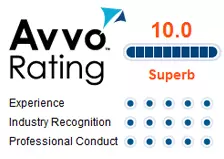If you are on bond or on probation for drunk driving, chances are the judge has ordered that you abstain from alcohol. Abstinence is usually monitored by random testing, but a newer test, the EtG test, is starting to become popular with judges. The problem is that it is totally unreliable and prone to false positives. This is a big problem if the judge wants to toss you in jail because of a positive EtG test.
Why EtG Tests are Not Reliable – Compared with other drugs, ethanol is rapidly metabolized to the ultimate end products of just carbon dioxide and water. Since these chemicals are so common, a test for carbon dioxide or water would mean nothing. However, the theory behind EtG tests is that after consumption and break down, ethanol (beverage alcohol) leaves behind certain “biomarkers,” or “clues” that may suggest that you have consumed ethanol at some point prior in time.
About 95 percent of the ethanol entering the body undergoes metabolism by oxidative enzymes in the liver. Alternatively, about one-tenth of one percent is cleared by non-oxidative metabolism into ethyl glucuronide (EtG) and ethyl sulfate (EtS). These “conjugated metabolites” are excreted in the urine.[i] Within the past few years it has become both scientifically and economically feasible to perform a urine test to “look” for these direct biomarkers, and this has lead to widespread use these EtG tests in various court and administrative hearings.
EtG tests may become positive shortly after even low-level exposure to alcohol and may remain detectible in urine and other bodily fluids for several days.[ii] It should be noted however, that these non-oxidative metabolites can also be simply measured using gas chromatography.[iii] The ultimate question though is whether a positive EtG test should ever be used as de facto evidence of alcohol consumption. Most assuredly, the answer is “no.[iv]”
What Other Courts Have Said About EtG Tests:
In a 2008 Ohio case dealing with these issues, Cynthia J. Johnson had her license as a physician’s assistant suspended after a single positive EtG test.[v] In this case Ms. Johnson was diagnosed with alcohol dependence/abuse, and underwent several years of supervision through the Ohio State Board of Medicine. It was alleged that after four years of demonstrated sobriety, she relapsed. In making this determination the board relied heavily on a single positive EtG test. Based on this single test Ms. Johnson’s license to practice was suspended.
In her defense Ms. Johnson’s claimed that the test was positive because she had consumed communal wine at a Christmas mass or was possibly due to her use of topical “everyday” products such as hand sanitizers.
The court overturned the board’s license suspension after finding that the EtG test is not reliable. They based this determination in part on the fact that the Substance Abuse and Mental Health Services Administration (SAMHSA) of the United States Department of Health and Human Services issued an advisory indicating that there remains an issue “whether exposure to alcohol or to the vapors of alcohol in many commercial products, such as personal care items, over-the-counter medications, cleaning products, desserts, wine vinegar, and the like, or combinations of these products, my cause elevation in EtG or EtS that could appear to be drinking.”[vi] They also relied on Dr. Skipper’s testimony that “serious peer-reviewed research remains underway because the science of EtG is not fully understood.”
The court ultimately concluded that while “reliable enough to be admissible, the EtG test must be used with caution.” Also, that it is “contrary to the rules of law to afford it (a positive EtG test) much weight standing alone,” and that “[L]egal or disciplinary action based solely on a positive EtG test is inappropriate and scientifically unsupportable at this time.”
What You Should do About a False Positive EtG Test:
If you are falsely accused of drinking alcohol based on an EtG test then make sure your attorney is well versed in the law and science involved. Ask him or her to order my DWI Journal: Law and Science article on which this post is based entitled: The Use of Alcohol Biomarkers in Monitoring Court-Ordered Abstinence. This article can be ordered from the publisher, Whitaker Newsletters, or have your lawyer call my office for assistance. Yes, we’re busy, but we’re never too busy for justice!
[i] Johnson v. State Med. Bd. of Ohio, 147 Ohio Misc.2d 121 (Ohio 2008) at 54.
[ii] SAMHSA The Role of Biomarkers in the Treatment of Alcohol Use Disorders, Vol. 5, Issue 4 (September 2006).
[iii] Jones, Biochemical and Physiological research on the Disposition and ate of Ethanol in the Body, Garriott’s Medicolegal Aspects of Alcohol, fifth edition, pg. 176 (2008).
[iv] Id.
[v] Johnson v. State Med. Bd. of Ohio, 147 Ohio Misc.2d 121 (Ohio 2008).
[vi] SAMHSA The Role of Biomarkers in the Treatment of Alcohol Use Disorders, Vol. 5, Issue 4 (September 2006).




{ 8 comments… read them below or add one }
I am 9 weekes pregnant, live in Caldwell,ID, I recently got a false positive I worked in a dental office where we use different kind of sterilization processing, was also told by a doctor i had a uti.I was put in jail, i am bein threatened that cps will take my baby upon it’s arrival.My p.o. does not believe a word i am saying,and if i do not admit to drinking while pregnant she will send me to prison, im scared i have no where to turn.
I recommend you go to http://www.ncdd.com and find a lawyer in your state to help you. Sorry you are going through this but your case is very similar to the one reported in my article.
Hello,
I am concerned as I am ordered for a urine test and have recently had a mushroom sauce on my steak which I found was based in a wine-reduced sauce (although at the time, I did not know!). Also, I have used anti-biotic mouth rinse which I found is 22% alcohol.
Also, I am trying to find if Oakland County MI does EtG testing or not. I don’t know where to go to figure this out. I surely can’t call my PO on this…
Thanks for any input.
Mark
P.S. I am not consuming or drinking ANY alcohol.
Pat: Excellent article. As a fellow attorney I always appreciate your expertise.
My employment was terminated at a recovery center in Virginia because of a positive ETG/ETS test. I have been sober for over 19 months and do not know how the ethanol was present in my body. Can you help me with a suggested course of action. I am bewildered by this turn of events and don’t know where to turn.
The best thing to do is contact a top DUI lawyer in Virginia. Go to NCDD.com for a complete list. Good luck!
I am just completing a year spent in “Intervention” diversion program offered in Golden Colorado for multiple DUI’s. At the start of this program, I had a false positive urine. I was sent to jail for 2 weeks. A few weeks back, one of the fellows in my group therapy class was hit with a false positive along with 4 other guys who went to a halfway house that collects urine on weekends. He went to jail for 18 hours and was released because the lab found an error in the five urines. This is the same location that my urine was false positive. I am so angry because I feel like this is so unfair to me. I am also a RN with a suspended license and this false information is relayed to the Board of Nursing. I know nothing can be done for me but I would like to make a point for other people that go to this halfway house that uses this lab. Can you help me? Any advice you would suggest after the fact?? Sincerely, Darcy Swysgood
Sorry to hear about your troubles. Try this link for your best DUI lawyer in Colorado. http://ncdd.com/duiattorneydirectory-Colorado.php